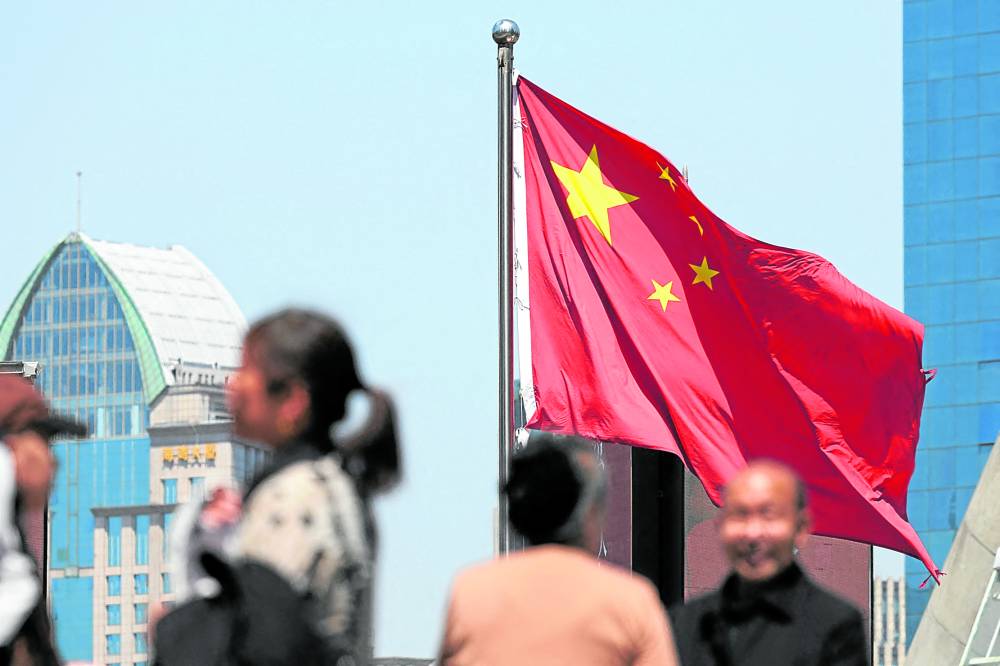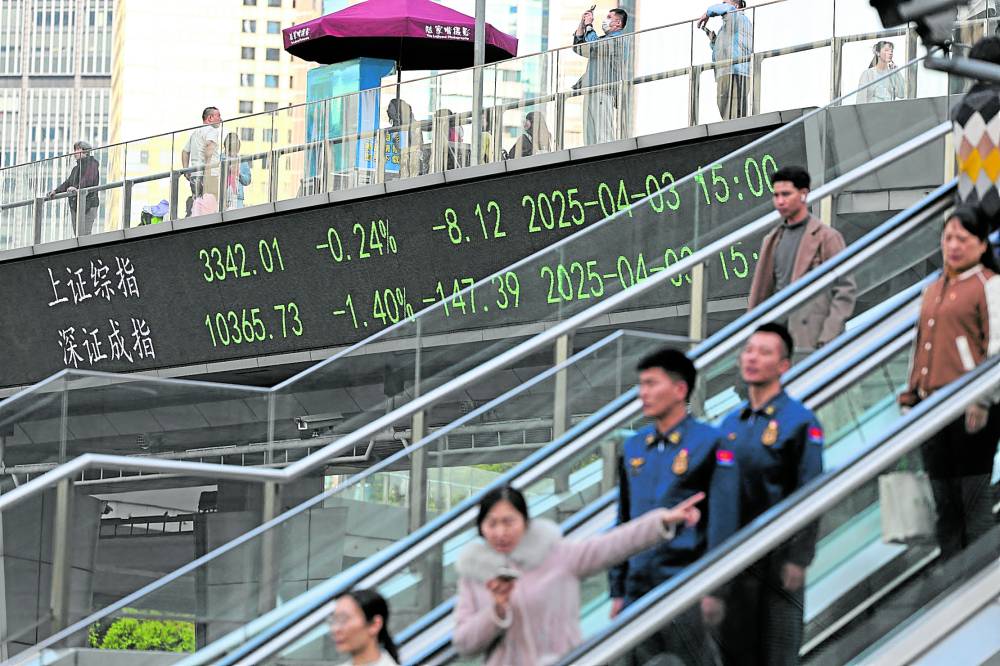‘For our country’: China’s patriots are buying the dip

SHANGHAI/SINGAPORE—Cao Mingjie had never traded stocks before Donald Trump’s “Liberation Day.”
The home designer from China’s southern Guangdong province changed his mind after April 2, when the U.S. president announced “reciprocal tariffs,” intensifying a trade war with his country.
Keen to show solidarity with Beijing, Cao decided he would invest 2,000 yuan ($274) in the local stock market every month.
“The goal isn’t to make money. It’s about contributing to my country,” said Cao. He said he opened trading accounts after the higher tariffs hit Chinese stocks. In this trade war, “every individual should stand by the country until the end.”
Like Cao, many retail investors are joining the state-backed “national team” to defend the stock market—another battlefield in the broadening Sino-U.S. conflict, traders and brokers say. Buying has been focused on sectors set to benefit from China’s national agenda, such as defense, consumer and semiconductors.
The patriotic fervor is unusual in small investors, notorious for their casino mentality, and a welcome change for authorities seeking to counter the panic caused by the trade war and stabilize capital markets.
Bouncing back
Since the rout on April 4, China’s share markets have received 45 billion yuan in net retail inflows, data from financial information provider Datayes shows. That compares with six straight sessions of outflows totaling 91.8 billion yuan ahead of Trump’s “Liberation Day.”
Previously, private and state investors clashed during the 2015 market crash and in the aftermath of Beijing’s crackdown of technology companies, undermining market rescue efforts.

But now, their interests appear aligned as Trump threatens eye-popping import tariffs that China has described as “bullying,” even if some retail investors are merely opportunistic and riding on Beijing’s swift and resolute intervention.
As China stocks plunged 7 percent on April 7, state-backed institutional investors publicly vowed to buy more shares, top Chinese brokerages pledged to steady prices, and a slew of listed companies unveiled share buyback plans.
Last week, Chinese Premier Li Qiang urged government officials to strengthen efforts to steady the stock market.
China’s stock market has bounced 8 percent from seven-month lows hit early April, and is down just 1.3 percent so far this month. That compares with a slump of more than 8 percent for U.S. stocks .
“We think China’s A-share market is of greater strategic importance,” said Meng Lei, China equity strategist at UBS Securities. Patriotic bets have “meaningfully improved investor sentiment,” Meng said.
Zhou Lifeng, from China’s northwestern Ningxia region, has vowed to pour more cash into stocks even if he incurs losses.
‘Holding on’
“Being patriotic means holding on to your stocks,” said Zhou, a mountain climber. Zhou said he owns mostly consumer and defense stocks worth 3 million yuan and has 7 million yuan cash in his war chest.
Restaurant operator Shu Hao said he had also invested several hundred million yuan in Chinese shares and that he was inspired by efforts made by domestic retail giants to help exporters bruised by the trade war.
JD.com, Alibaba-owned Freshippo, and supermarket operators CR Vanguard and Yonghui Superstores have announced measures to help exporters pivot to the local market.
“People are expressing patriotism in various ways,” said Shu. He said he had bought technology and consumer shares.
The stocks and sectors people are buying into reflects nationalistic pride. They are mostly areas in which Beijing has self-sufficiency targets or have local champions that are being shut out of global markets due to the tariffs.
Reflecting this, consumer and chipmaking shares have risen since Trump’s “Liberation Day” despite weaker broader markets, while tourism and agriculture-related shares have recovered quickly.
Reuters, the news and media division of Thomson Reuters, is the world’s largest multimedia news provider, reaching billions of people worldwide every day. Reuters provides business, financial, national and international news to professionals via desktop terminals, the world's media organizations, industry events and directly to consumers.

















